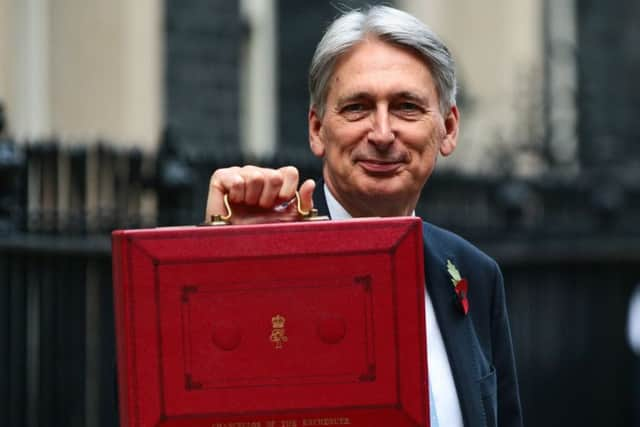Income tax divide between Scotland and rest of UK explained
The Commission chaired by Lord Smith of Kelvin recommended that Holyrood should get new powers over income tax bands and rates.
As a result, the Scottish Government has the means to set a significantly different income tax policy than that set by the Chancellor at Westminster.
Advertisement
Hide AdAdvertisement
Hide AdScotland’s Finance Secretary Derek Mackay took the historic decision to set a different income tax policy north of the border. The new Scottish income tax system was passed by Holyrood earlier this year. It saw higher earners pay more income tax than south of the border – creating a tax divide.


A budget that widened the divide
The divide widened at Phillip Hammond’s most recent budget when he adjusted the band for higher rate taxpayers south of the border.
In his budget, Mr Hammond announced that from April 2019 the personal allowance – the amount you can earn without paying any income tax – will be raised from £11,850 to £12,500. The threshold at which taxpayers south of the border start paying higher rate tax will increase from £46,350 to £50,000 – delivering a tax break for mid-earners.
The increase in personal allowance will apply in Scotland, but the increase in the higher tax rate threshold will not.
South of the border income tax payers are divided into three bands.
Income earned between £12,500 and £50,000 is subjected to the basic rate of 20 per cent .
The higher rate of 40 per cent is paid on income between £50,000 and £150,000. While the riches pay the additional rate of 45 per cent on income over £150,000.
Scotland’s different system
In contrast, Scotland now has a five band system that has seen a cut for the lowest income levels, but also an increase with the introduction of an intermediate rate of 21 per cent for income over £24,000.
Advertisement
Hide AdAdvertisement
Hide AdThe five band Scottish system sees income between £12,500 and £13,850 taxed at a starter rate of 19 per cent.
The basic rate of 20 per cent is charged on income between £13,840 and £24,000.
The new intermediate rate of 21 per cent is charged on income between £24,000 and £43,430. An extra penny is charged with a 41 per cent higher rate on income between £43,430 and £150,000.
Income above £150,000 is taxed at increased additional rate of 41 per cent.
The divide between the two systems means that someone earning £50,000 in Scotland can expect to pay £1,100 more than they do south of the border.
What does the divide mean for Scotland’s economy.
The Scottish Government say that the cut delivered by the starter rate means that most Scots pay less income tax. Therefore Scotland enjoys a fairer system.
The UK Government’s economic advisory body the Office for Budget Responsibility (OBR) has said the widening tax gap risked seeing people switch their tax residency to south of the border, cutting hundreds of millions of pounds from Scottish tax revenues.
In evidence to MPs, Andy King of the OBR said: “If you’re a relatively high income individual with a property in Scotland and one elsewhere in the UK writing to HMRC to say `I live more than half the year in London rather than Scotland is not difficult.’
Advertisement
Hide AdAdvertisement
Hide AdHe added: “It’s a particularly significant risk for the Scottish Government because if someone chages their address, the Scottish Government loses all of that income tax.”
Scottish Labour leader Richard Leonard said: “Income tax is devloved and raising the higher rate threshold should not be a priority for the Scottish Government. We need a distinctive tax that meets the needs of the people of Scotland.”
